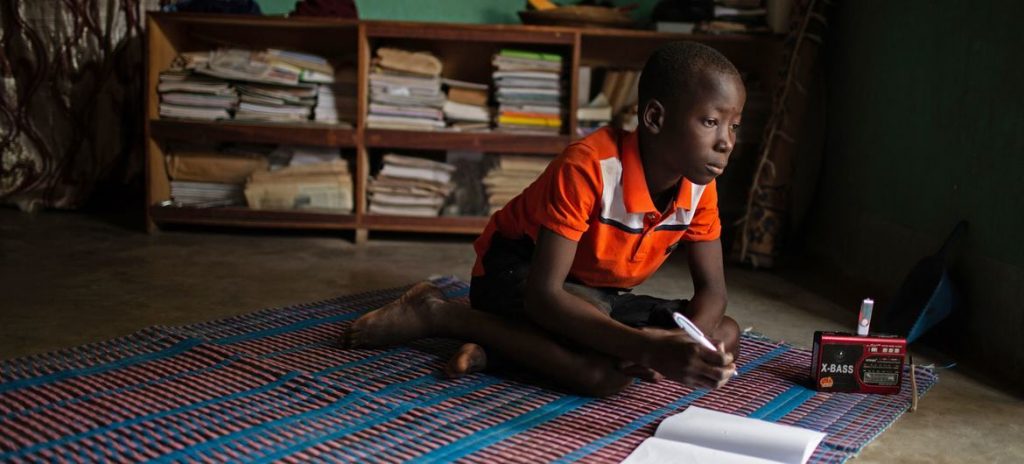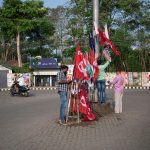By Dr. Gyan Pathak
Inequality in access to learning, either physical or online classes, in the last two years of the COVID-19 crisis, which is now entering the third year, has now become the greatest divider of the society. Millions of students worldwide are yet to return in the classrooms while millions others just unable to access online classes, making them even unable to interact with their teachers and their peers, thus running risks of dropping out and permanent learning loss.
The new report by UNICEF titled “Are Children Really Learning?” has found evidence of the number of children dropping out of school and permanent learning losses are poised to increase. The pandemic has hold back some 405 million school children from a full return to the classrooms, and 23 countries of the world are yet to fully reopen schools.
The learning loss estimation included in the report mentions 34 countries including India. It said that 92 per cent of students lost at least one specific language ability, and 82 per cent lost at least one specific mathematical ability in India from the previous pre-pandemic year. On the basis of these early findings and simulations, it is reasonable to assume that prolonged school closures and other disruptions to education system brought on by the pandemic have led to substantial learning loss.
Learning loss is a decline in student knowledge and skills, which occurs when educational progress fails to occur at the same rate it has in previous years. The report has found evidence that younger students are more vulnerable than older ones to learning loss as a result of pandemic because young children are less likely to seek learning on their own because of their less advanced developmental and cognitive abilities. Learning losses, it says, can be very difficult to regain, especially for young children who fall behind, because of challenges to reintegrating them into education systems, especially when these systems don’t pay sufficient attention to those most at risk.
While examining readiness to learn outside the classroom, the report mentions lack of internet connection at home. The fact remains that 1.3 billion children in the world currently lack internet connectivity. The crisis has thus brought some urgency to the need to address the digital divide. The report also warns that even after the pandemic ends and all schools are able to fully reopen, there is likely to be a permanent shift to more digitized and other forms of remote learning. Its solution involves a range of issues from poverty, culture, illiteracy, technological progress and other functional difficulties to be resolved.
With each passing day, the devastating impact of the pandemic on children’s learning becomes more apparent. Widespread school closures and other barriers have amplified and compounded a pre-existing global learning crisis that already threatened the futures of millions of children around the world. As this report shows, even in the pre-pandemic days, the majority of children in countries analysed had not mastered foundational skills in either reading or numeracy by the time they reached Grade 3. Only 30 per cent of these children had foundational reading skills and just 18 per cent had foundational numeracy skills. Even one quarter of Grade 8 students did not have the skills to understand even Grade 2 textbooks.
Now the pandemic has widened disparities and deepened inequity. Children from the poorest households, those involved in child labour, children with disabilities, and other marginalized groups are falling even further beind their peers in their learning.
The report has estimated a loss of 2 trillion hours for school children. The study has also pointed out that 147 million children missed more than half of their in-class instruction over the past two years.
Out-of-school children, ie those children of primary and secondary school-age who are not enrolled in education but different from those whose schools remain partially or fully closed due to COVID-19 restrictions, are some of the most vulnerable and marginalized in society – least likely to read, write or do basic math, the report said. Moreover, they are cut off from the school safety nets – putting them at even greater risk of exploitation and a lifetime of poverty and deprivation.
Although out-of-school children suffer the greatest loss, pre-pandemic data from 32 countries and territories highlighted an already desperately poor level of learning that has only been exacerbated by the COVID-19-triggered education crisis.
In the countries analysed, the current pace of learning is so slow that it would take seven years for most schoolchildren to learn foundational reading skills that should have been grasped in two years, and 11 years to learn foundational numeracy skills. Furthermore, there is no guarantee that school children have learned the basics at all, in many cases.
A quarter of eighth graders, who are around 14-years old, did not have foundational reading skills and more than half lacked the numeracy skills expected of seven-year-old in second grade, according to data.
In addition to data on learning loss, the report points to emerging evidence that shows many children did not return to school when their classroom reopened.
When the world fails to educate its children, we all suffers, says UNICEF Executive Director Catherine Russell. “We cannot keep failing an entire generation of students. Only urgent action and investment by governments and other partners can stem the tide of learning loss. It is not enough simply to reopen schools. We need a concerted global effort to make education a top priority.”
As the pandemic enters its third year, we can’t afford to go back to ‘normal’. We need a new normal, she said, “getting children into classrooms, assessing where they are in their learning, providing them with the intensive support they need to recover what they’ve missed, and ensuring that teachers have the training and learning resources they need. … The stakes are too high to do anything less.” (IPA Service)




 Two-Day Nationwide General Strike A Total Success In Kerala
Two-Day Nationwide General Strike A Total Success In Kerala 